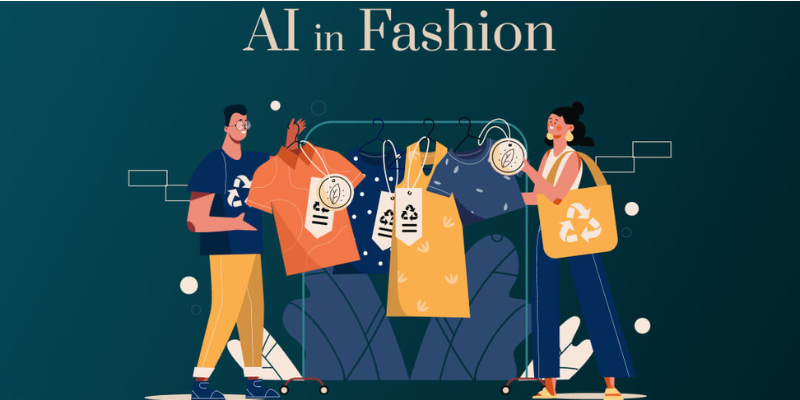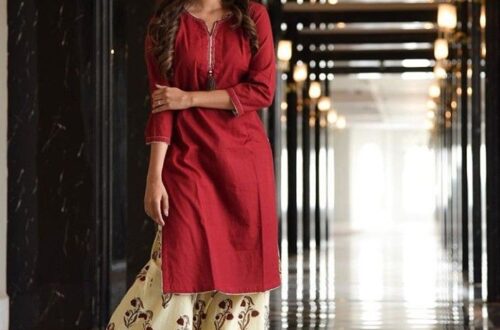The technology known as Artificial Intelligence is gradually penetrating the fashion industry, presenting new opportunities to designers, producers, and customers. Today AI is improving the fashion industry in many ways. It affects the way malls and clothing companies approach their customers, operations and even environmentalism. Already, technology has started playing the role of the catalyst by shaping the future of fashion. The integration of AI promises to drive innovation and efficiency, revolutionizing every aspect of the fashion world.
AI in Fashion Design and Personalization
AI is revolutionalizing the fashion industry by changing how designs are made and tailored to suit the customer. Artificial intelligence methodologies enable designers to estimate the tendencies and preferences of customers through data analysis, enhancing the collection’s relevance to market requirements. Sophisticated filters also make shopping even easier when recommending the type of fashion that one wants, the size and even the colour preferred by the fashion-conscious individual. It increases customer satisfaction, hence loyalty, since every individual is treated separately with products that fit their needs. Those interested in learning how AI can be integrated into the fashion industry, the Artificial Intelligence Course in Chennai to gain the necessary skills and knowledge.
Optimizing Supply Chain and Inventory Management
AI is also tapped in fashion supply chains and inventory in the fashion business. When it comes to the benefits AI provides, Fashion Brands can forecast demand which then benefits the brands through stock and also minimising wastage. It is always easier and more efficient for an AI tool to observe sales data in a retail business concern, analyze it and respond in real-time, thereby predicting instances when certain products may be in high demand, thus enabling the retailer to make the right products available in the right quantities and at the right times. This leads to efficiency and cost-cutting, where matters of overproduction and a buildup of stock are detrimental.
Virtual Fitting Rooms and Augmented Reality
The augmented garment try application based on Artificial Intelligence and Augmented Reality is improving the experience of people trying wonderful dresses. Customers can then use their smartphones or augmented reality mirrors to see how an item of clothing, for instance, a dress, will fit them before they purchase it. This technology is not only entertaining and engaging for the consumer but also assists in reducing the incidents of returns since consumers get the consumer relevant information on the product. Virtual fitting rooms are especially helpful for mainstream shoppers since they can provide a connection between the Web and real shopping.
Sustainability and Eco-friendly Fashion
AI is also being used to drive changes towards sustainability within the fashion business. Subsequently, through the analysis provided by AI, companies can explore opportunities to use fewer resources, recycle or use the materials in another way or identify more environmentally friendly materials. Sustainable fashion can be achieved when the life cycle of products is traced and artificial intelligence is used to help fashion brands design in the right manner. Also, AI can assist in exposing unethical practices in the supply chain so that firms can make the right choices over sourcing and manufacturing cycles. This aligns with fashion’s increasing focus on ethical and sustainable clothes.
AI in Marketing and Consumer Engagement
Automated marketing communication skills are revolutionizing the manner in which fashion brands connect with consumers. Using information from social media, online reviews and even web surfing, AI can contribute to improved and more accurate brand engagement. It is possible to forecast what a particular audience would be interested in, and these algorithms are practical for brands that want to get the most out of their advertisement budget. Furthermore, AI can further develop customer service through chatbots and virtual assistants who will better answer the customers’ inquiries and make the buying experience all the more satisfying. If you’re interested in expanding your knowledge of AI, you can also explore an Artificial Intelligence Course in Bangalore to deepen your understanding of how AI impacts various industries, including fashion.
AI-Driven Fashion Forecasting
While fashion forecasting was earlier more of an art based on the expert’s guts and past experiences, AI is empowering this process to an entirely new level by leveraging massive amounts of data for more accurate prediction. In fact, AI systems can crawl social media, fashion shows, and even weather forecasts to find out which styles, colours, and fabrics are gonna be hot over the course of the following seasons. By so doing AI assists fashion brands to be in a better position in regard to trends and thus be in a better position to decide on what products they need to design and develop. This reduces the risk of fashion waste and ensures that brands can meet consumer demand efficiently.
AI in Fashion Production and Manufacturing
AI is also being applied to the Fashion Industry by cutting the production and manufacturing processes. Machines and AI with robotics are applied to enhance the line of production, minimize errors, and enhance the quality of the outcomes. It can enhance the performance of production in real-time, determining the extent of deceit businesses try to avoid. The result is better quality garments and shorter cycle times, and these are benefits which can give fashion brands an edge in a highly competitive space.
AI is positioned to revolutionize the creative, efficient, and sustainable fashion-forward future that is on the horizon. Stating the obvious, the worth of the technology makes it undeniable that it will only increase as new advances are made in the future. AI has become important for fashion brands because the market is shifting towards digital and sustainable fashion.





